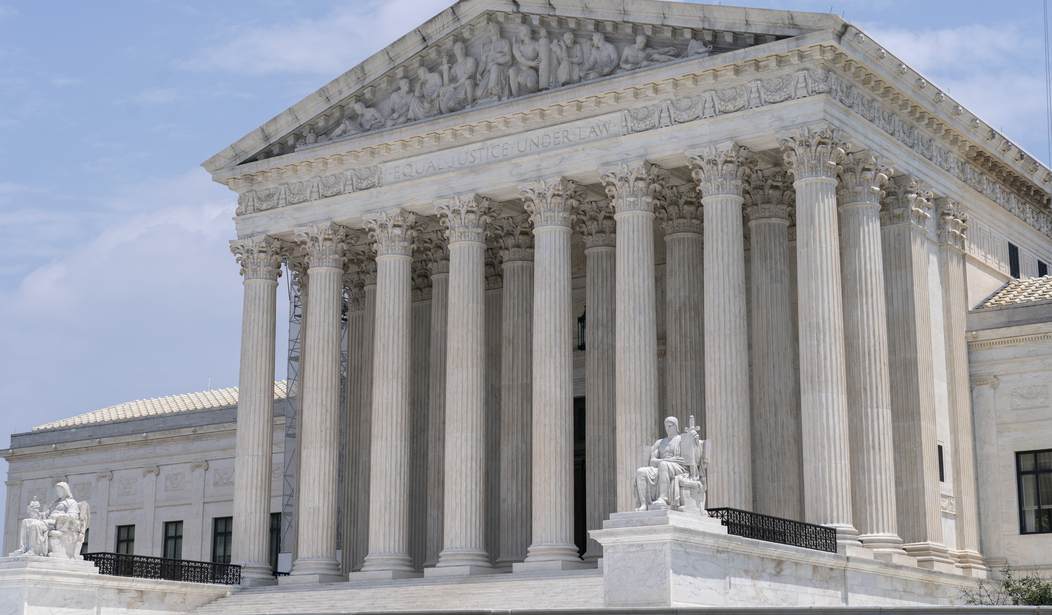After the Supreme Court overturned the Trump administration's bump stock ban last week, critics complained that the justices had interpreted the Second Amendment in a way that rules out perfectly reasonable gun regulations. That was an odd complaint, because the case did not involve the Second Amendment.
The Court's decision upheld an important principle that goes far beyond gun control: Federal bureaucrats do not have the authority to invent new crimes by rewriting the law. All Americans, regardless of how they feel about gun rights, have a stake in that principle, which is crucial to the rule of law, the separation of powers, and the due process requirement of fair notice.
Sen. Chris Murphy (D-Conn.) saw last week's decision as a sign that the Supreme Court plans to "fundamentally rewrite the Second Amendment," which will "make it very hard for Congress or state legislatures to be able to regulate guns." MSNBC commentator Joyce Vance had a similar objection: "Does the history & tradition of our country really suggest the Founding Fathers meant for the 2nd Amendment to arm Americans with guns that fire 400 to 800 rounds per minute?"
Although Murphy is a lawyer and Vance is a law professor, they completely misconstrued what this case was about. The Supreme Court ruled that the Bureau of Alcohol, Tobacco, Firearms and Explosives exceeded its statutory authority when it tried to ban bump stocks.
The products the ATF targeted are designed to assist bump firing, which involves pushing a rifle forward to activate the trigger by bumping it against a stationary finger, then allowing recoil energy to push the rifle backward, resetting the trigger. As long as the shooter maintains the requisite amount of forward pressure and keeps their finger in place, the rifle will fire repeatedly.
Recommended
The "interpretive rule" at issue in this case, which was published in Dec. 2018 and took effect three months later, banned stock replacements that facilitate this rapid firing technique by allowing the rifle's receiver to slide back and forth. The ATF did that by classifying rifles equipped with bump stocks as machine guns, which contradicted the statutory definition and the agency's long-standing interpretation of it.
Under federal law, a machine gun is a weapon that "automatically" fires more than one round "by a single function of the trigger." A bump-fired rifle plainly does not fit that definition: It shoots just one round each time the trigger is activated and, given the manual effort necessary to fire additional rounds, does not fire "automatically."
Bump stocks became notorious after a gunman used them in an attack that killed 58 people at a Las Vegas music festival in Oct. 2017. But even legislators who wanted to ban them recognized that the ATF could not do that on its own.
Because "the ATF lacks authority under the law to ban bump-fire stocks," Sen. Dianne Feinstein (D-Calif.) said, "legislation is the only answer." Noting that "the law has not changed," Feinstein warned that "the gun lobby" would "have a field day" with the ATF's "about face," which relied partly on "a dubious analysis claiming that bumping the trigger is not the same as pulling it."
Feinstein was right about that. But contrary to Murphy's take, recognizing that the ATF overstepped its authority does not mean Congress is powerless to act.
"The statutory text is clear, and we must follow it," Justice Samuel Alito wrote in a concurring opinion. "An event that highlights the need to amend a law does not itself change the law's meaning." But "now that the situation is clear," he added, "Congress can act."
Whatever the merits of a bump stock ban, in other words, regulators cannot unilaterally impose one, especially when that decision suddenly criminalizes the conduct of gun owners who abided by the law as the ATF had repeatedly explained it. Allowing that sort of lawless edict would be a recipe for tyranny.

























Join the conversation as a VIP Member